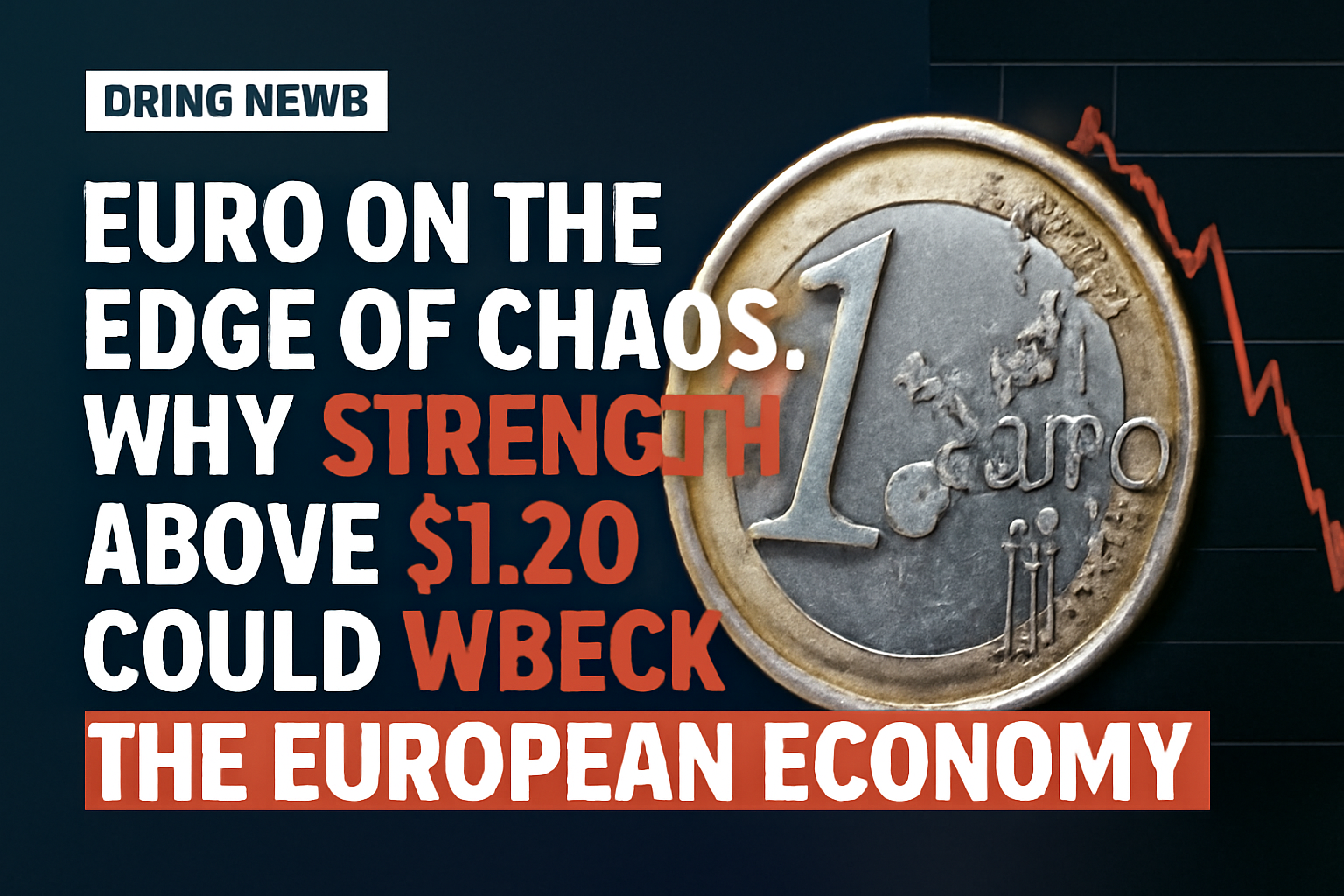Euro on the Edge of Chaos: Why Strength Above $1.20 Could Wreck the European Economy?
The European Central Bank (ECB) and analysts are sounding the alarm! The euro has surged nearly 14% against the US dollar this year and is currently trading around $1.18. But if it keeps strengthening and crosses the magic $1.20 mark, things could go downhill fast for the entire Eurozone.
What’s going on?
Luis de Gindos, the ECB’s Vice President, made it clear that further euro gains above $1.20 could become a serious problem. Why? Because a stronger euro means more expensive exports from the Eurozone. It’s like throwing a cold shower on European exporters who are already struggling with stagnant business activity.
Why does it matter?
The Eurozone has cut interest rates, inflation has fallen below target, and monetary authorities are trying to stimulate the economy. But if the euro keeps rising, it could complicate further monetary easing. In short, the ECB might lose control over its plans to revive the economy.
Speed is the real issue
De Gindos emphasized that it’s not just the level of the exchange rate that’s a problem, but the speed at which the euro is strengthening. A rapid rise can wreak havoc on economic forecasts and plans.
What do analysts say?
Experts warn that a stronger euro could weaken the competitiveness of European exports, further slowing the Eurozone economy. And that’s the last thing they need while battling slowing growth.
Bottom line
The euro is walking a tightrope between acceptable growth and dangerous strengthening. If it crosses $1.20, the entire Eurozone could face serious economic troubles. The ECB is watching closely, but the question is whether it can stop this trend before it’s too late.
Is this the beginning of the end for the European economy?
If you thought the euro situation was boring, think again! This currency could wreck your business, your neighbor’s business, and even the whole economy. So, what do you think? Will the ECB save the day or are we headed for even bigger chaos? Drop a comment, crack a euro joke, or just share your thoughts — this is the place for all the wild theories and serious worries!
Source: Blic, Bloomberg, ECB statements











